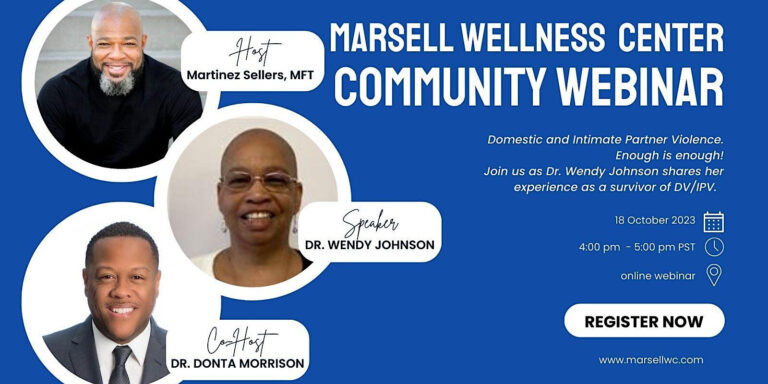At MarSell Wellness Center, our mission is not only to see each family but to hear each family’s story. With a 20-year relationship and rapport within the counties served, we provide comprehensive services, including access to community and government resources. Our mental health services are tailored to address the unique needs of individuals, couples, and families, ensuring that everyone receives the support they need. In this article, we will discuss ten essential aspects of our services that can help improve lives through consulting, mental health, and family services.
1. Individual Therapy
Understanding the Individual’s Needs
Individual therapy is a crucial aspect of mental health services, where a person meets one-on-one with a therapist to address their specific concerns. This personalized approach allows the therapist to understand the individual’s needs and develop a customized treatment plan.
Developing Coping Strategies
During individual therapy, clients learn to develop coping strategies that help them manage their emotions and navigate daily life more effectively. These strategies can include relaxation techniques, mindfulness practices, and cognitive restructuring.
Enhancing Self-Awareness
A significant goal of individual therapy is to increase self-awareness. Through therapy, clients can gain a better understanding of their thoughts, feelings, and behaviors, leading to improved emotional regulation and decision-making.
Building Emotional Resilience
Individual therapy helps clients build emotional resilience, enabling them to adapt to life’s challenges more effectively. This resilience can lead to better mental health and overall well-being.
Ongoing Support
Ongoing support is essential for maintaining progress made during therapy. Regular check-ins with a therapist can help clients stay on track and continue to develop healthy coping strategies.
2. Couples Therapy
Strengthening Communication Skills
Couples therapy focuses on helping partners develop effective communication skills, essential for resolving conflicts and maintaining a healthy relationship.
Addressing Relationship Issues
During couples therapy, partners work together with a therapist to address relationship issues, such as trust, intimacy, and emotional connection. This collaborative approach can lead to a stronger, more fulfilling relationship.
Rebuilding Trust
In cases where trust has been broken, couples therapy can help partners work through the process of rebuilding trust, which is crucial for a healthy and long-lasting relationship.
Enhancing Emotional Intimacy
Couples therapy aims to enhance emotional intimacy by helping partners understand each other’s needs, feelings, and desires. This understanding can lead to a deeper emotional connection and a happier relationship.
Preventing Relationship Breakdown
Couples therapy can help prevent relationship breakdown by addressing underlying issues before they escalate. Early intervention can lead to a more stable and satisfying partnership.
3. Family Therapy
Strengthening Family Bonds
Family therapy focuses on strengthening family bonds by improving communication and problem-solving skills among family members. This process can help families resolve conflicts and foster a supportive, nurturing environment.
Addressing Family Dynamics
Family therapy helps families address dysfunctional family dynamics, such as power struggles, enmeshment, and triangulation. By addressing these issues, families can work together more effectively and create a healthier home environment.
Supporting Families Through Transitions
Family therapy can be particularly helpful for families going through significant transitions, such as divorce, remarriage, or the addition of a new family member. Therapy can help families navigate these changes and maintain healthy family relationships.
Promoting Positive Parenting Strategies
Family therapy can help parents develop positive parenting strategies, leading to improved child behavior and more harmonious family life.
Enhancing Emotional Well-Being
Family therapy can help families enhance their emotional well-being by addressing underlying emotional issues and improving communication and emotional expression.
4. Child Therapy
Supporting Emotional Development
Child therapy focuses on supporting children’s emotional development by helping them understand and manage their feelings more effectively.
Addressing Behavioral Issues
Child therapy can help children address behavioral issues, such as acting out, aggression, or withdrawal. Through therapy, children can develop healthier coping strategies and improve their behavior.
Developing Social Skills
Child therapy can help children develop essential social skills, such as empathy, cooperation, and communication. These skills can lead to improved relationships with peers and adults.
Enhancing Self-Esteem
Child therapy can help children enhance their self-esteem by supporting their emotional development and addressing any underlying issues contributing to low self-esteem.
Supporting Families
Child therapy can also provide support to families, helping parents understand their child’s emotional and behavioral needs and develop effective parenting strategies.
5. Expert Advocacy
Navigating Community and Government Resources
Our expert advocacy services at MarSell Wellness Center can help families navigate community and government resources effectively, ensuring that they receive the support they need.
Identifying Appropriate Services
Through our expert advocacy, we can help families identify appropriate services and resources that best meet their needs, such as mental health treatment, educational support, and financial assistance.
Assisting with Application Processes
Our expert advocates can assist families with the application processes for various services and resources, reducing stress and increasing the likelihood of successful outcomes.
Supporting Families Through Challenges
Expert advocacy can provide ongoing support to families as they face challenges and work to overcome obstacles, ensuring that they continue to receive the help they need.
Promoting Family Empowerment
Our expert advocacy services aim to promote family empowerment by helping families access the resources and support they need to improve their lives and achieve their goals.
6. Mental Health Education
Increasing Awareness
Mental health education is essential for increasing awareness of mental health issues and reducing the stigma often associated with them.
Promoting Early Intervention
Education on mental health can promote early intervention by helping individuals recognize the signs and symptoms of mental health issues and seek appropriate support.
Enhancing Coping Skills
Mental health education can help individuals develop healthy coping skills, leading to improved mental health and well-being.
Supporting Families
Mental health education can support families by providing them with the knowledge and resources they need to understand and address mental health issues within the family.
Promoting Community Well-Being
By increasing awareness and promoting early intervention, mental health education can contribute to improved community well-being and overall mental health.
7. Support Groups
Providing a Safe Space
Support groups provide a safe space for individuals to share their experiences and feelings related to mental health issues, fostering a sense of belonging and understanding.
Reducing Isolation
Support groups can help reduce feelings of isolation by connecting individuals with others who share similar experiences and challenges.
Enhancing Coping Strategies
Through support groups, individuals can learn from others’ experiences and develop new coping strategies to manage their mental health issues more effectively.
Promoting Recovery
By providing a supportive environment and opportunities for skill-building, support groups can contribute to improved mental health and promote recovery.
Building Resilience
Support groups can help individuals build resilience by providing them with the tools and resources they need to overcome challenges and maintain their mental health.
8. Holistic Wellness Services
Mind-Body Connection
Holistic wellness services focus on the connection between the mind and body, recognizing that mental health and physical health are interconnected.
Integrative Approaches
Through integrative approaches, holistic wellness services can address the root causes of mental and physical health issues, leading to improved overall well-being.
Complementary Therapies
Holistic wellness services may include complementary therapies, such as yoga, meditation, or acupuncture, which can enhance mental health and well-being.
Promoting Self-Care
Holistic wellness services can help individuals develop self-care practices that support their mental and physical health, leading to improved overall well-being.
Supporting Long-Term Wellness
By focusing on the mind-body connection and promoting self-care, holistic wellness services can support long-term wellness and overall mental health.
9. Crisis Intervention
Immediate Support
Crisis intervention services provide immediate support to individuals experiencing a mental health crisis, ensuring that they receive the help they need.
Safety and Stabilization
During a crisis intervention, the primary goal is to ensure the individual’s safety and stabilize their mental health, addressing any immediate concerns.
Connecting to Resources
Crisis intervention services can connect individuals in crisis with appropriate resources, such as mental health treatment, support groups, or housing assistance.
Providing Follow-Up Care
Following a crisis intervention, it is essential to provide follow-up care and support to ensure the individual’s continued well-being and prevent future crises.
Promoting Recovery
Crisis intervention services can promote recovery by addressing the underlying issues contributing to the crisis and connecting individuals with the support they need to improve their mental health.
10. Community Outreach
Raising Awareness
Community outreach can help raise awareness of mental health issues and the available resources and services, ensuring that individuals and families have the information they need to access support.
Reducing Stigma
By raising awareness and promoting understanding, community outreach can contribute to reducing the stigma often associated with mental health issues.
Connecting Communities
Community outreach can help connect communities and foster collaboration among various organizations, service providers, and individuals working to improve mental health and well-being.
Promoting Mental Health Advocacy
Through community outreach, organizations like MarSell Wellness Center can promote mental health advocacy, encouraging individuals and communities to take action and support mental health initiatives.
Enhancing Community Well-Being
By raising awareness, reducing stigma, and connecting communities, community outreach can contribute to improved community well-being and overall mental health.
In conclusion, MarSell Wellness Center offers a comprehensive range of services designed to improve lives through consulting, mental health, and family services. By focusing on individual, couples, family, and child therapy, expert advocacy, mental health education, support groups, holistic wellness services, crisis intervention, and community outreach, we strive to empower individuals and families to overcome their challenges and achieve their goals. Our commitment to hearing each family’s story and our 20-year relationship within the counties served ensures that our clients receive the personalized support and resources they need to thrive.




